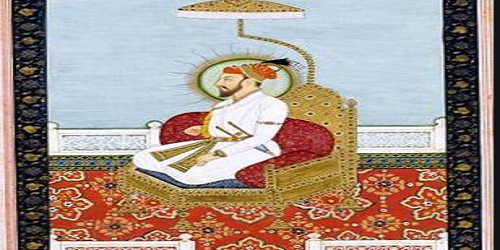Rafi-ud-Daulah (Shah Jahan II ): Phantom Mughal Emperor

Rafi-ud-Daulah was one of the phantom kings raised to the Mughal throne by the powerful Sayyid Brothers, k nown as the King-makers in the Mughal history. He was proclaimed Mughal emperor on 6 June 1719 by them when the health of his predecessor Rafi-ul Darjat showed signs of decline. Rafi-ud-Daulah, also known as Shah Jahan II, was also a mere puppet in the hands of Sayyid Hussain Ali Khan Barha, younger of the Sayyid brothers. He was not allowed to attend the Friday prayers. Not to speak of going out hunting he was not even allowed to enter into any conversation with any of the nobles. During the reign of Rafi-ud-Daulah , a new claimant to the Mughal throne came in the form of Niku Siyar, who was declared ruler at Agra by a rival party opposed to Sayyid brothers. Niku Siyar was the son of Auragzeb’s rebel son Akbar. However, Niku Siyar was defeated and sent to prison where he had spent most of his early life. Rafi-ud-Daulah died on 17 September 1719. He is buried nea